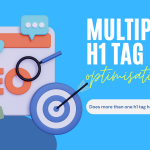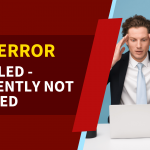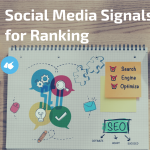Ecommerce SEO Tips & Checklist: How to rank high your e-commerce website
Are you having an eCommerce website? Do you want to rank high for all your product keyword searches (like Google, Bing etc..)? Are you looking for an effective way to optimize your eCommerce website? You are at the right place!
 There is no doubt that Search Engine Optimization (SEO) is a proven, effective tool to help enhance your website traffic and business, thus optimizing an online eCommerce website is even more important as compared to other niche websites. With all core eCommerce website SEO requirements and recommendations, I have prepared the following SEO checklist that will help you optimize your eCommerce website to rank high on search engines:
There is no doubt that Search Engine Optimization (SEO) is a proven, effective tool to help enhance your website traffic and business, thus optimizing an online eCommerce website is even more important as compared to other niche websites. With all core eCommerce website SEO requirements and recommendations, I have prepared the following SEO checklist that will help you optimize your eCommerce website to rank high on search engines:
• Product Keywords – These are words/phrases that appear in the content of your site. Brainstorm a list of words that you would search if looking for your product. You can use the free Google Adwords keyword tool (https://adwords.google.com/select/KeywordToolExternal). Use the keywords often in the text of your site (2-4% density), but do not obviously overuse them, or the search engine will treat them as spam. (Learn more about our Google Ads Consultancy services)
• Research – Though not a tool in and of itself, research will tell you if you are on the correct path. Once you determine your keywords, run a search for each keyword or phrase to see if the content of the pages (product pages) generated matches the content of your page. If not, try new keywords until you are confident that consumers searching for your product will find your eCommerce website easily.
• Code to Text Ratio – Search engines like Google calculate the percentage of text that appears on a web page in order to determine whether or not that page is relevant to the requested search query by the user. A higher text ratio places a page higher in rank. Search engines prefer text to images, and prefer HTML to other formats.
• Titles – Make your page title descriptive as this title will appear as the link on the search result page when the search engine returns its results to the consumer. Keep your title interesting, keep it to the point of your site/products, and keep it brief and concise – no more than five to eight words (65 chars). It’s recommended to use keywords in the page title. Title each document on the site appropriately so that they will be searchable by keywords pertaining to the content of the site. Also, avoid title duplicity across the website.
• Meta Tags – Meta tags are also one of the most important SEO elements for your website. While some search engines now ignore keyword Meta tags, many use the description meta tag to elaborate on the title. Use keyword-rich Meta description to explain the content of your webpage.
• Image Tags – As search engines can’t read the images, use Image “Alt Tags” to specify an alternate text for an image. This tag will be read as text to search engines instead of images (increasing your code to text ratio), and should contain your keywords.
• Internal Linking – Make sure that all your important product pages and categories are linked from the Home page of your website. Link these pages within your site using keywords and phrases. Search engines use these internal links to crawl the internal pages of the website. Such links will increase the natural usage of the keywords on your site, and generate more interest in your site.
• HTML Site Maps – Site maps were initially used to enable visitors to navigate a site with ease. Now they also help to increase the crew ability of a website. The sitemap should be simple; keyword-rich, and link to every page within the site.
• Frames – Do not use frames on your site. Do not put your products in Frame. The search engine may see the frame only and ignore any of the text contained within the frame.
Need help to boost your e-commerce SEO campaign, please fill the form in the right or call me at +91 965-464-7969 or mail me at sales@seofreelance.net
Digital Marketing Consultant and blogger with over a decade of experience in crafting compelling digital strategies. From SEO wizardry to social media magic, I’ve been navigating the digital landscape like a pro. With a knack for engaging content and a passion for innovative marketing solutions, my journey has been all about transforming online presence into powerful brand stories.







